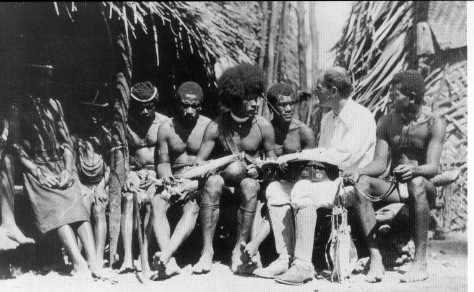Every discussion reached a similar conclusion, surprisingly quickly considering the effects of altitude on alcohol tolerance: A person both supports and is supported by a community.
In fact, from an anthropologist's perspective, that is how humans survived and thrived for hundreds of thousands of years. Knowledge was not a commodity, it was a right. Innovation was embraced and shared. The modern education system is not based on such concepts. It is generally authoritarian, bureaucratic, and militaristic. And it is obsolete. In it's current state, it can only perpetuate problems. That's why teachers must be anthropologists.
I mean it quite literally. Anthropology and elementary education share every characteristic except one. Anthropologists wish not to influence their ethnographic subjects; educators specifically do want to influence our students. In order to make good decisions about how to guide children's learning, teachers need to objectively observe and assess society to filter 'everything' into comprehensible units for kids. It's a daunting challenge, and I wonder if students wouldn't be better off filtering for themselves anyway?!
At least I can say that learning to see your students through an ethnographic lens will certainly make you a better teacher.
Movements like Genius Hour, the Maker Movement, Social Creativity, and Open-Learning, and achievement badges are some of the first bells to toll for our stagnant system of so-called learning. They are wrestling control of learning away from schools to give it back to learners where it belongs, and they provide exactly the kinds of authentic content elementary teachers should curate for students.
In Fischer's article, he describes metadesign. Metadesigners, in my interpretation, design systems which empower users to create their own designs. MIT Media Lab's Scratch is a great example, as it visually represents elements of code, allowing the user virtually limitless possibilities for creation, while at the same time learning concepts coding. The same idea can be applied to any system, from YouTube to Wikipedia, provided it meets certain criteria for openness and adaptability. Metadesigners recognize that everyone has brilliance within them and help to unlock it.
Let's become metateachers. Instead of imparting knowledge, let's create and develop environments in which children can acquire it through inquiry. Let's frame inquiries with concepts which can be interconnected and applied universally. Prioritize emotional and social understanding to nurture collaboration and empathy. Find resources and experts who would ignite our students' passions. Let's design systems of learning which empower learners to design their own learning.


No comments:
Post a Comment